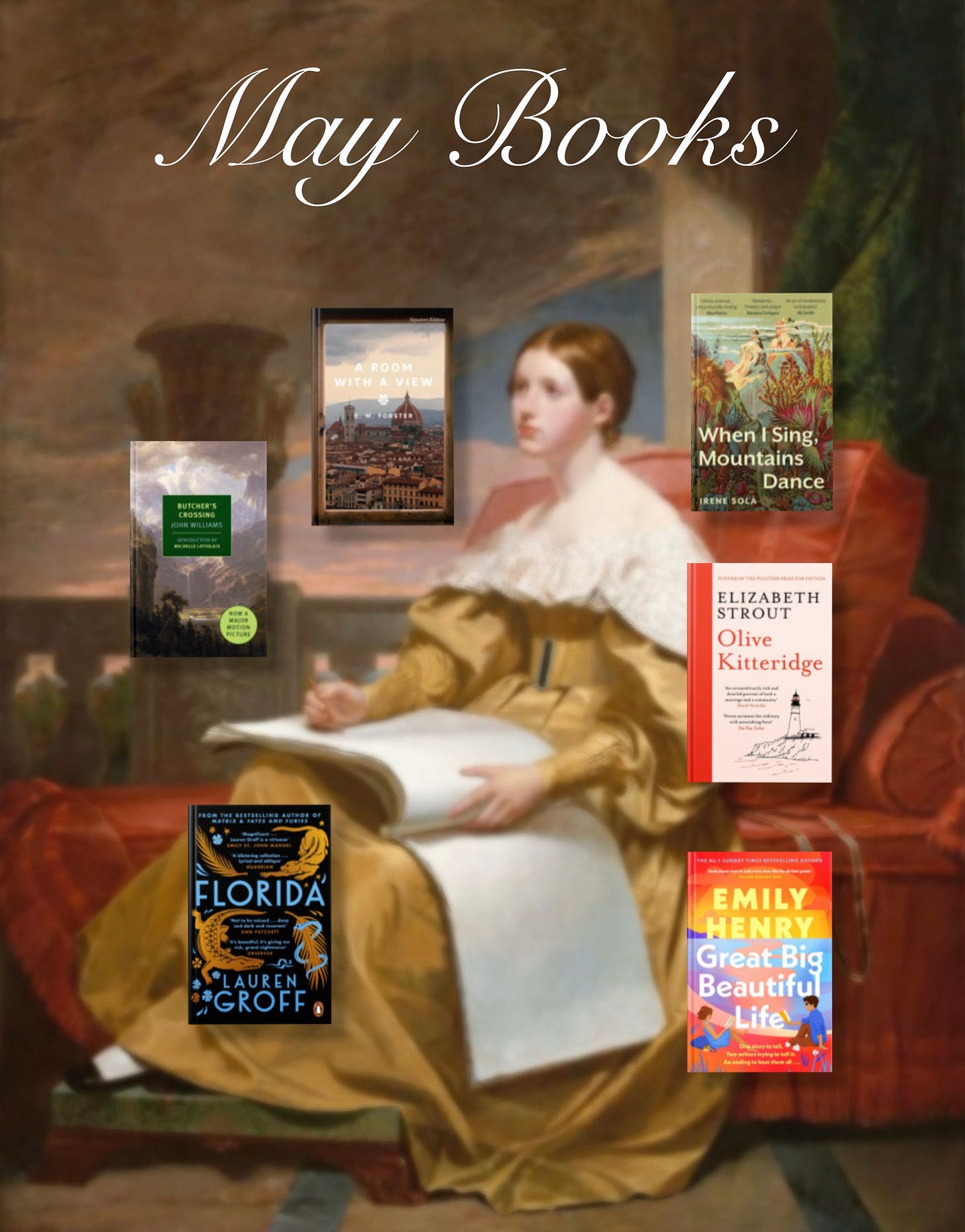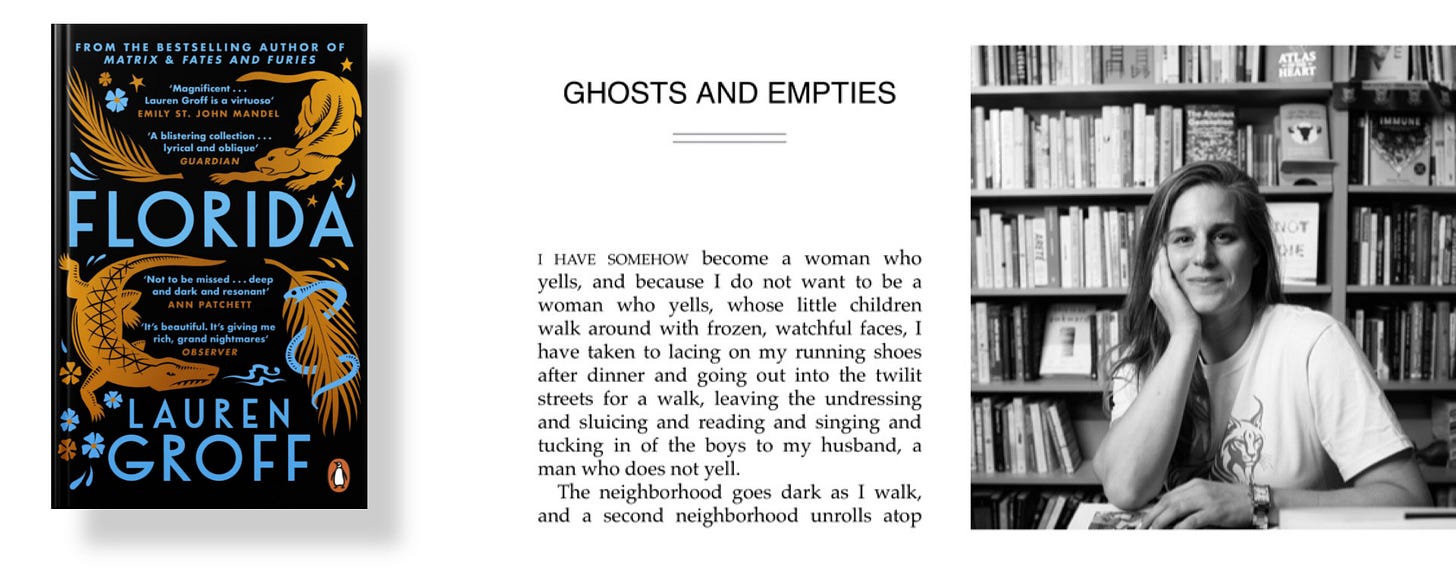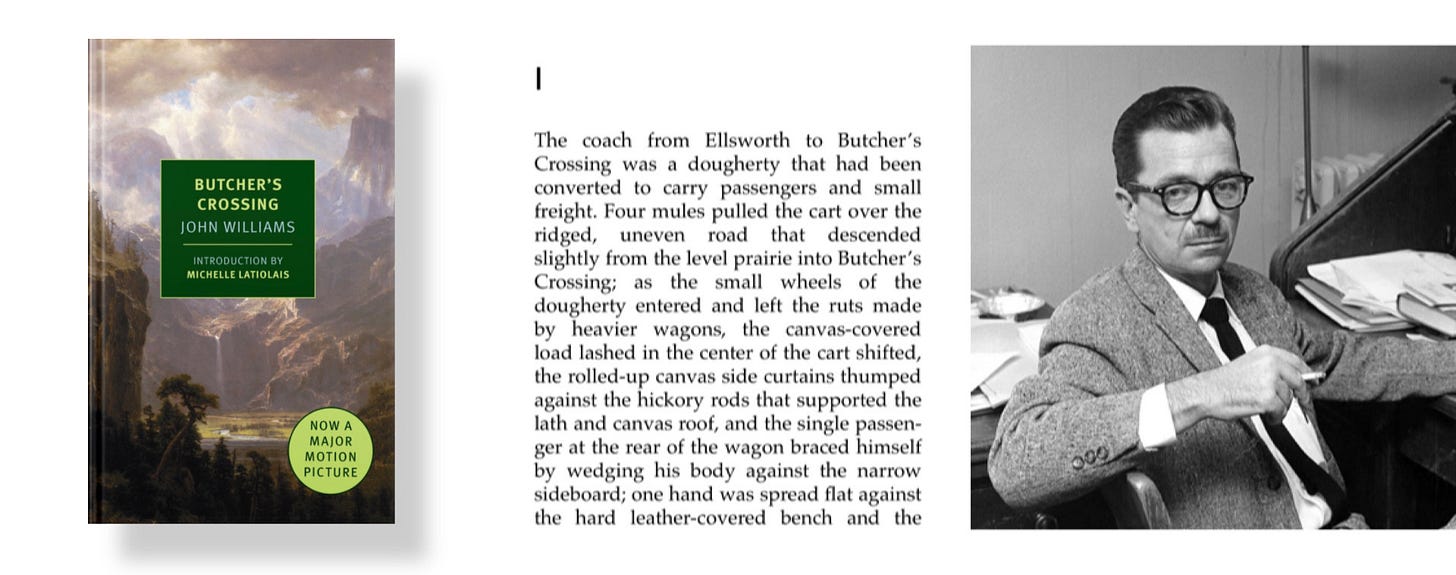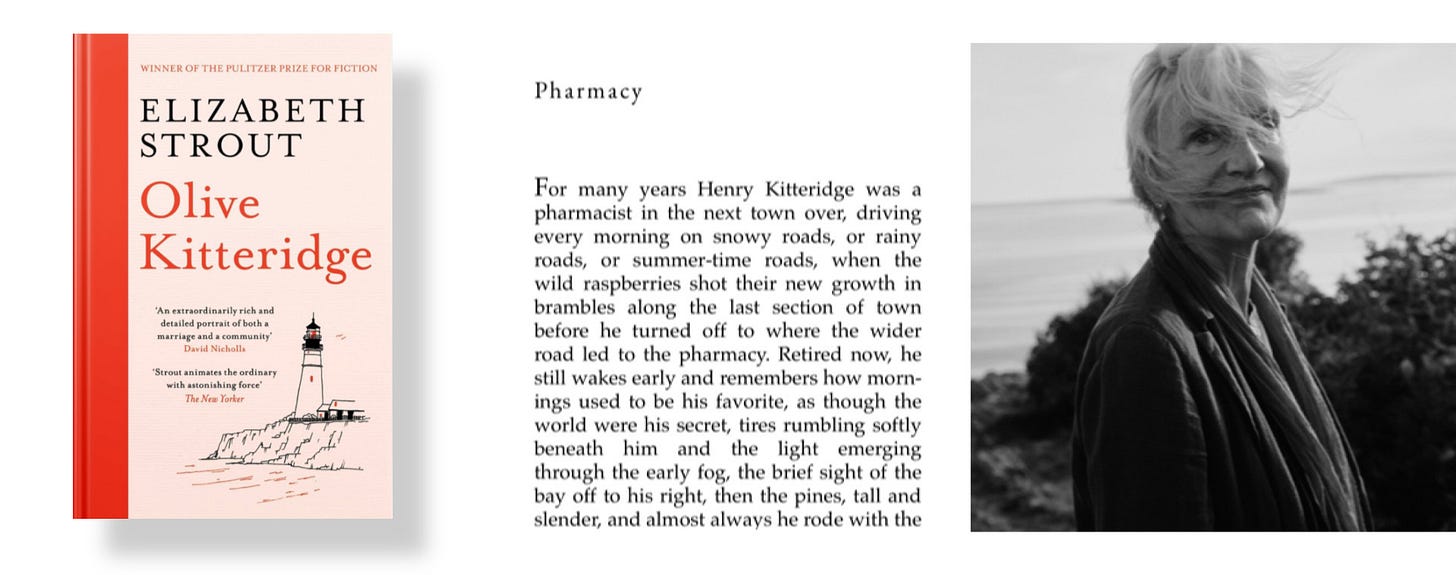Into the Archivist's Mind: May Books
Thoughts and reflections about the books I read in the month of May!
What can I say about this month… Honestly, it was one to forget. Out of the six books I read, I truly enjoyed only one. Definitely not my best reading month. But as I always remind myself, the books we don’t love still help us grow as readers. They sharpen our sense of what we enjoy and teach us more about our personal taste. So I never regret picking up a book, even if it didn’t end up being a favorite.
Also, just to be clear: none of these are bad books! It’s all a matter of personal preference. So if one of your favorites is on this list, please don’t take it personally.
Here are my thoughts on each one, with hope that June brings better reading days!
A Room with a View written by E.M. Forster.
With just about 190 pages, A Room with a View actually took me a few extra days to finish. The beginning was a bit slow for me, but as the story unfolded, I found myself more interested. We meet Lucy Honeychurch, a young woman visiting Florence in the early 1900s. Surrounded by art, beautiful landscapes and a variety of interesting characters, Lucy finds herself drawn to George, the son of the eccentric Mr. Emerson. Their romance develops against the disapproval of Lucy's cousin, and the contrast between the Emersons and the other characters highlights a key theme of the novel: the progressive ideals of the Emerson family conflict with the closed mindset of the British aristocracy. Forster uses these contrasting characters to criticize the restrictive society of the time. After Lucy returns to England, she must confront her feelings and decide between George and Cecil, a snobbish family friend. The second half of the novel, where Lucy deals with her choices, was actually my favorite part. I appreciated Lucy's character development and how the Emersons influenced her for the better, pushing her to question societal norms. I mentioned the slow start because honestly, I struggled to get invested in the novel at first. I'd watched the film adaptation years ago and remembered loving it, so I was a little disappointed when I found the book boring at first. But it happens sometimes. That being said, it picks up by the end and I almost wished it had been a bit longer to explore more, especially George and his ideals. It’s so rare for me to find a male romantic love interest that doesn’t annoy me and that I actually want to get to know better. I was expecting more. Perhaps after reading and loving Maurice, my expectations were just a bit too high.
When I Sing, Mountains Dance written by Irene Solà.
Bewitched and mystical. That’s how I would describe this book in two words. What is essentially a story that revolves around a family, this one doesn’t necessarily come across as obvious or reduced to a typical “generational story.” You may ask why. Well, this story doesn’t have just one narrator. The voices of the family members are there, obviously, ready to guide us through their lives, but there are other voices involved. Strange and peculiar voices. Voices I had never heard before. But we still begin with the patriarch, Domènec. In the first chapter, he’s struck by lightning and dies. From there, we learn about him, his wife, his children, and the people of the small village where they live, in the Pyrenees. But as I said, beguiling voices begin to appear immediately. Mushrooms talk to us, as does a deer. The family dog tells us about something he saw. The ghosts of witches also narrate, as well as the mountains and the clouds. There are other… let’s say “normal” ghosts that appear too. This was unlike anything I’ve ever read, and I loved it. The poetic pen of Irene Solà really shines here, with a lyrical prose that made me pause a few times to appreciate it in its fullness. Even though we start with a death, the book feels so alive. I felt like everything was trying to get out of the pages, or like the nature that is so important and present in these words wanted to pull me in and transform me into a flower, to give me a voice too. Love and nature are themes that are essential to me and present in almost all of my favorite books, so I was so glad to find them again here, especially as they were so well portrayed. I’ll be thinking about this for a while. I’m eager for everyone to read it, even if it’s a strange book. You really need to have an open mind before picking it up, but at the end it’s so worth it. I also wanted to say that I’m really impressed with the translator, Mara Faye Lethem. This was originally written in Catalan, and with its flowing language I bet it was a challenge, but it was very well executed, in my humble opinion!
Florida written by Lauren Groff.
It’s so hard reviewing short story collections — at least for me — because I’m not the biggest short story lover and also because, like in this case, the stories rarely connect with each other and are often very different. So, this one is a short one! The stories in Florida by Lauren Groff have one thing in common: Florida, obviously. Some take place there, in others it’s just an old memory. Another common thread is their tone: they’re often sticky, bleak, and told from the perspective of women. They’re all written really well (though I did have some problems with the last one). Groff doesn’t use quotation marks, and even though that usually really bothers me in books, the stories were interesting enough for me to let it pass. I actually enjoyed the lengthier ones the most, probably because I had more time to sit with the protagonists and their settings. I do think these would work better for people who are already familiar with her work. But I’m eager to read more by her! I’ve heard especially good things about Fates and Furies, and I can’t wait to dive into her longer works. On a side note, I think this is a perfect late summer read.
Great Big Beautiful Life written by Emily Henry.
Lower your expectations and you will not be disappointed. That’s the lesson I learned from reading this book. Every year, around summertime, I get the urge to read about love, adventure, and silly light stories. So, last summer, on my usual “light read summer list”, I wrote down a couple of fantasy and romance authors. Emily Henry’s name was the first that came to mind, I’d heard she was a romance author who, unlike others, actually wrote books worth reading. And apparently, her stories sometimes even dipped into women’s fiction! I read the blurbs for all her books, and the only one that stood out to me was Beach Read. Long story short: I read it and kind of hated it. The writing felt basic, the characters did absolutely nothing for me, and I figured maybe romance just wasn’t for me. Nothing wrong with that! A year passes, and suddenly, around April, I start getting literally bombarded by TikToks about her new book, Great Big Beautiful Life. So I go straight to Goodreads and start reading the reviews (something I never do before reading a book) In those reviews people were complaining about how this wasn’t what they signed up for, that it didn’t belong to a specific genre, that it didn’t have a “real” romance (honestly, I don’t know what book they read, but it wasn’t the same one I did). They were criticizing aspects I usually love in books: a story within a story and generational storytelling, for the most part. So I thought… why not? But, still thinking about my first approach with her writing, I kept my expectations low. I started reading about these two writers, Alice and Hayden, who are trying to gain the trust of the famous Margaret Ives: born into a rich and famous family, married to an even more famous singer, and someone who has suddenly disappeared from the public eye. Margaret now wants to tell her and her whole family’s story, to finally make sense of all the rumors and scandals surrounding them. The result of this competition is a classic rivals-to-lovers situation. And the people saying this isn’t a romance are, excuse me, simply wrong. I honestly don’t understand how someone wouldn’t classify this as romance. Sure, there’s so much more: the whole Ives family story (which of course, was my favorite part), a complicated mother-daughter relationship, grief, critiques of the media and the patriarchy. I get that traditional romance readers might be a little bored by the inclusion of these themes. But I actually found the romance pretty heavy. I won’t go into details: one, because, as always, the love interest was just a man to me (nothing special, didn’t really care for him), and two, because the sex scenes were a lot. Very detailed. And honestly, like the rest of the novel, not even that well written. They always feel like fanfiction to me. The writing overall, I think, is the most overrated part of Emily Henry’s books. It’s not bad, just very simple and not particularly articulate. This was a letdown for me after Beach Read, especially considering how people put her on a pedestal and rave about her “beautiful writing.” Sometimes I wonder: if she’s the best at writing romance novels, I can’t even imagine the rest. But I don’t want to be mean. I actually enjoyed reading this book, it was entertaining and just what I needed to keep me from sliding down the reading slump hole. I’d recommend it to readers who don’t usually read romance novels. I think it could be a great introduction to the genre. But take my words with a grain of salt, I’m not an expert.
Also, I read that one of her other books is getting a movie adaptation? I’m actually happy about that, I think her books will translate better on screen!
Butcher’s Crossing written by John Williams.
I didn’t love Butcher’s Crossing as much as I hoped I would, especially not compared to Stoner, which I read a couple of years ago and remember loving. (I actually should give it a reread soon, I’ve grown so much as a reader in the last couple of years that maybe my opinion could be different after a reread.) The beautiful prose that Williams is known for is still present in Butcher’s Crossing, but I’m afraid that wasn’t enough for me to love it. The premise is compelling: Will Andrews, a young man fresh out of Harvard, heads west chasing ideas about nature and self-discovery. He ends up in Butcher’s Crossing and joins a buffalo hunting expedition led by the obsessive Miller. The book is essentially a tough journey through a cold and uncaring land. Williams writes the setting incredibly well, you can practically feel the cold, the smell of the earth, the physical exhaustion of the characters. In the middle of the book, we learn about skinning buffalo, surviving snowstorms, just as Andrews is learning. At times, this was a little too much for me, too descriptive. But while the atmosphere is vivid, the pacing often drags. By the end, I was exhausted. And I thought the first part was really good, actually! What disappointed me most, I think, is that I never really connected with the characters. Andrews, in particular, starts off hopeful but ends up empty, and the process felt detached to me, I think nature was the real protagonist of the story. Also, Andrews’ internal journey didn’t resonate and I found the other characters flat and not that interesting. Francine, the one female character, is a prostitute who is obviously treated horribly and obviously falls for the naïve protagonist, and when she tells him that, he finds himself repulsed by the thought of every man that laid in her bed. It was all... just barely more than a tired cliché. Williams just doesn’t write women well, at least not here. (If I remember correctly, this was also a problem in Stoner) It’s possible I came to this book with the wrong expectations. I read it right after a romance and on the edge of a reading slump, so maybe I just wasn’t in the right headspace. If you’re not familiar with Williams’ work, I would still recommend reading this before Stoner. And even if I didn’t enjoy this, I’m still really curious to read Augustus.
Olive Kitteridge written by Elizabeth Strout.
I’ll start by saying that I didn’t enjoy this, but it was totally my fault. Sometimes we build up expectations about books, whether positive or negative, and we end up either disappointed or pleasantly surprised by the whole experience. I’ve been pleasantly surprised before, but disappointment is what almost always gets me. Olive Kitteridge was no exception, unfortunately. For some reason (maybe it was the description of a small coastal town, a little community, lots of characters, and a bit of gossip) I picked up this book expecting some lovely, uplifting, cozy stories about the life of our protagonist, Olive, and her husband Henry. Boy… was I wrong. There was almost nothing uplifting about these stories. Yes, they all take place in a picturesque Maine town. Yes, they all feature different protagonists, all living in the same community. They all know Olive, so she appears in every single one of them. That structure actually worked pretty well for me. As I said before, I often struggle with collections of short stories, so I appreciated how these interconnected. That’s a positive aspect of the book. But between the tragedies, we get to know Olive and I’m so sad to say that I didn’t love her, even though she’s very much a real character. I don’t believe we need to write about good people all the time. I do love a complicated woman, a stubborn woman, but maybe Olive felt too real to me. She’s the typical mother obsessed with her son, who’s a grown man. She hates all his girlfriends, she’s horrible to his wife, and she doesn’t think anyone deserves him. All the stereotypes of a boy’s mom are there (having two brothers, trust me, I know what I’m talking about). And as I said, maybe I didn’t like her because she felt too real, and reading about a woman who I couldn’t stand was a bit of a drag. (Can I also say that she was a little too mean for my taste?)
I also didn’t sympathize at all with her husband, Henry, who is central in the first story. To me he just felt like a creep. I know Elizabeth Strout is a beloved author, and this book actually won the Pulitzer Prize in 2009, but her prose didn’t impress me. Honestly, after five stories, I was already tired of the whole thing. I was waiting for at least one happy story and it only got worse, tragedy after tragedy. I think Olive and I will part ways, but maybe I’ll give the Lucy Barton series a try, hoping it’ll be a bit more uplifting.










